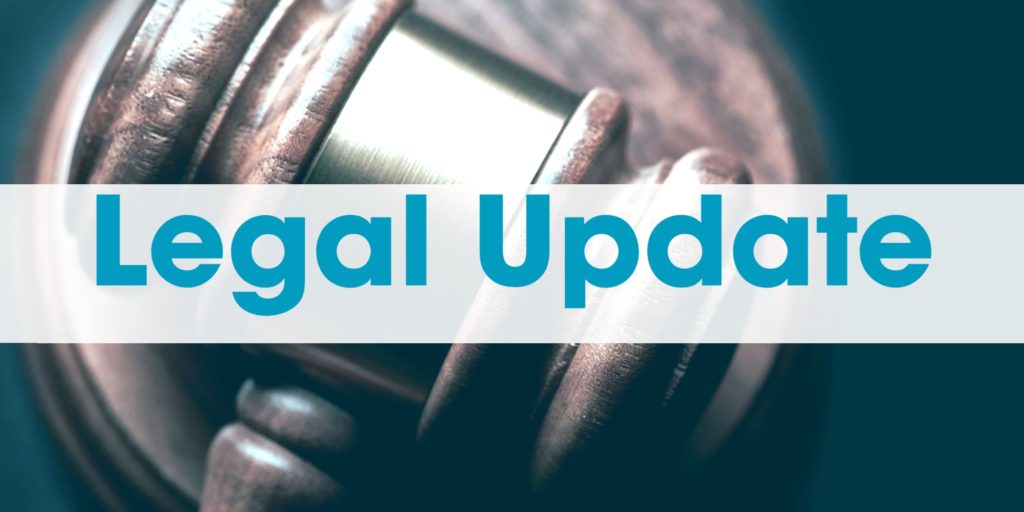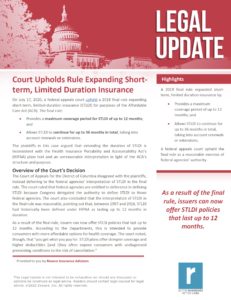 On July 17, 2020, a federal appeals court upheld a 2018 final rule expanding short-term, limited-duration insurance (STLDI) for purposes of the Affordable Care Act (ACA).
On July 17, 2020, a federal appeals court upheld a 2018 final rule expanding short-term, limited-duration insurance (STLDI) for purposes of the Affordable Care Act (ACA).
The final rule:
• Provides a maximum coverage period for STLDI of up to 12 months; and
• Allows STLDI to continue for up to 36 months in total, taking into account renewals or extensions.
The plaintiffs in this case argued that extending the duration of STLDI is inconsistent with the Health Insurance Portability and Accountability Act’s (HIPAA) plain text and an unreasonable interpretation in light of the ACA’s structure and purpose.
Overview of the Court’s Decision
The Court of Appeals for the District of Columbia disagreed with the plaintiffs, instead deferring to the federal agencies’ interpretation of STLDI in the final rule. The court ruled that federal agencies are entitled to deference in defining STLDI because Congress delegated the authority to define STLDI to those federal agencies. The court also concluded that the interpretation of STLDI in the final rule was reasonable, pointing out that, between 1997 and 2016, STLDI had historically been defined under HIPAA as lasting up to 12 months in duration.
As a result of the final rule, issuers can now offer STLDI policies that last up to 12 months. According to the Departments, this is intended to provide consumers with more affordable options for health coverage. The court noted, though, that “you get what you pay for. STLDI plans offer skimpier coverage and higher deductibles [and t]hey often expose consumers with undiagnosed preexisting conditions to the risk of cancellation.”
As a result of the final rule, issuers can now offer STLDI policies that last up to 12 months.
Highlights
A 2018 final rule expanded short- term, limited-duration insurance by:
- Provides a maximum coverage period of up to 12 months; and
- Allows STLDI to continue for up to 36 months in total, taking into account renewals or extensions.
A federal appeals court upheld the final rule as a reasonable exercise of federal agencies’ authority.
This Legal Update is not intended to be exhaustive nor should any discussion or opinions be construed as legal advice. Readers should contact legal counsel for legal advice. ©2020 Zywave, Inc. All rights reserved.


